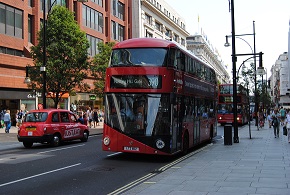Putting smart public transport technology to the test

Related topics
Innovation Transport Smart, green and integrated transport Belgium Finland France Germany Italy Portugal Spain Sweden United KingdomBy encouraging the prioritisation of energy-efficient solutions in bus renewal programmes and new tenders, the EBSF_2 project aims to lower operating costs, and to cut down on carbon emissions over time. Smart IT solutions should also enable public transport authorities to offer more integrated transport solutions across urban areas.
Putting technology to the test
“The EBSF_2 (European Bus System of the Future 2) project will test and evaluate these solutions through real service demonstrations,” explains project coordinator Michele Tozzi, EU project manager at the Union Internationale des Transports Publics (UITP), Belgium. “This will enable suppliers to add to their product portfolios, which will strengthen their competitiveness as leading suppliers of cutting-edge products for buses. IT suppliers should also benefit from new standardised solutions that are interoperable and cost-efficient.”
These demonstrations will involve more than 500 buses across 12 European cities (Barcelona, Dresden, Gothenburg, Helsinki, London, Lyon, Madrid, Paris Area, Paris City, Ravenna, San Sebastian, and Stuttgart) and will address issues ranging from improving energy efficiency and optimising bus management through to new bus layout concepts and optimised accessibility. Electric modular buses with adjustable capacity to meet actual demand will be trialled, along with predictive maintenance tools that avoid expensive repairs and new bus stop designs that aid access for all.
“We will also test adaptable eco-driving support systems that take into account public transport specifics – bus drivers need to keep to tight schedules and stop frequently,” says Tozzi. Tools to encourage greener driving behaviour – and thus reduce fuel and energy use – will include new IT solutions with interfaces that inform drivers of how they are performing.
Heating, ventilation and air conditioning (HVAC) is another important area for energy improvement due to high power needs, and the project will test possible solutions across different climate conditions (for example in Gothenburg, Helsinki and Barcelona). “An improvement of 30 % in HVAC energy use can result in a 10 % saving on the overall energy consumption of the bus,” says Tozzi. Other solutions to be tested at several demo sites (such as San Sebastian and Gothenburg) will focus on the relationship between vehicle and bus stop, with the aim, for example, of improving disabled access.
From design to implementation
“Since the project was officially launched in June 2015 in Milan, all demonstration teams have met to set up their implementation plans and to define the specific technical innovations to be tested,” says Tozzi. “The project evaluation team is now actively working with the demonstration leaders to define the test scenarios.”
Once the demonstrations have been carefully analysed, the project team will develop guidelines and tools to facilitate the introduction of the most effective concepts. Examples of these guidelines include achieving energy efficiency in vehicle procurement, the best ergonomic design for user interfaces, and a design charter for new electric buses.
“The commitment of all 42 project partners – which include major European bus manufacturers, suppliers and operators – gives us confidence that the project’s results will have an important impact on urban bus services”, says Tozzi. “Many solutions may also be adapted for the retrofitting of buses already in operation, so it is important that we keep additional hardware costs as low as possible.”
The EBSF_2 project, which will receive nearly €10 million in EU funding, is due for completion in April 2018.
